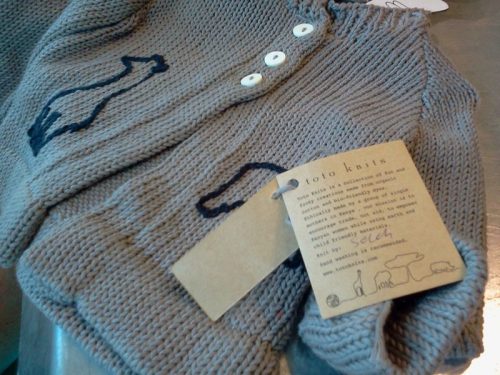
I moved to Kenya from New York City in 2002, just after the 9/11 dust had settled. The whole event made me want to do something different with my life. Although I loved working for a glossy magazine and all the perks that came with it, I felt it was time do something that actually helped people. Initially I came as the Director of Finance and Development for a school for children with special needs. While working there I met a lovely lady called Mary Wambui, a single mother of three, who whilst very talented at all sorts of crafts – weaving, beading, sewing, crocheting and not least of all knitting – lacked the formal education that might have helped her get a job in Nairobi to support her sons.
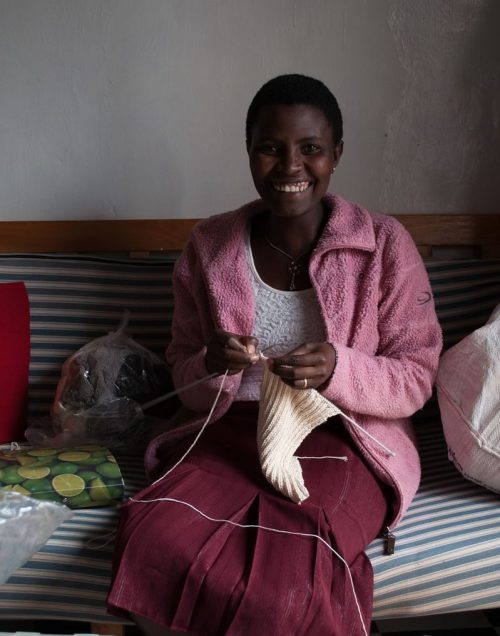
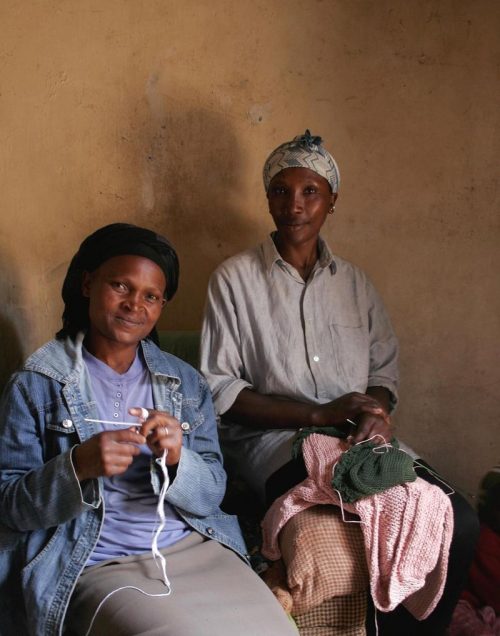
As I got to know Mary better I realized there was a whole social class just like her – women, who for various reasons, were left to raise their children on their own. It seemed the traditional family structure was slowly disintegrating and these women were paying the price. Like Mary, they had traditional skills but struggled to find work that could support their families.
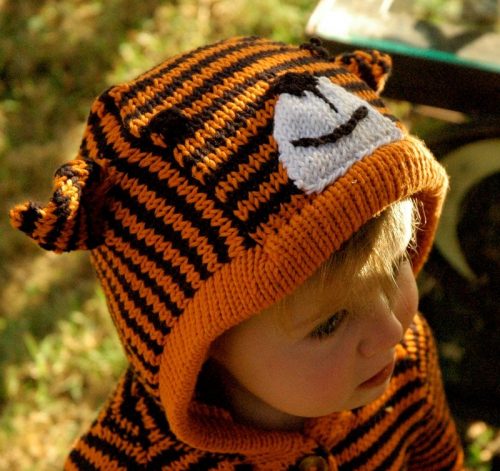
From this, Toto Knits was born. It’s unusual to start a business based on a labour force as opposed to an idea or filling a need, but this is typical of Kenya’s business environment. It’s also unusual for someone with no fashion training to start a fashion business but again, the ‘wild west’ atmosphere in Kenya means you rarely play by the rules. I wanted a company that would not only provide dignified and flexible work for these ladies but would also train them to create international standard quality products, ultimately creating a business that worked on solid principals – not just a charity type endeavour that looks good on paper.
First I needed organic cotton yarn. Kenyan knitters love acrylic and the wool which would appeal to a Western market was too scratchy for children. The only products I could find were either candle wick or mop yarn. It turns out there’s only one machine in East Africa that can twist cotton thread into yarn. And I found it! I was very confused when I was first sent to the thread factory as the referring lady told me to look for Fi’s Penis, which of course was nowhere in the phone directory, but I eventually found Fine Spinners and they were happy to help.
Then I had to find organic cotton. This took another few years but I persisted and found that too – sometimes in Uganda and sometimes in Tanzania. Sadly there is no certified organic cotton grown in Kenya as the process is too expensive for the farmers here and the government has not taken an interest in this. I’ve been told however that because the farmers are so poor and can’t afford pesticides, the cotton grown in Kenya would probably pass the tests for certification.
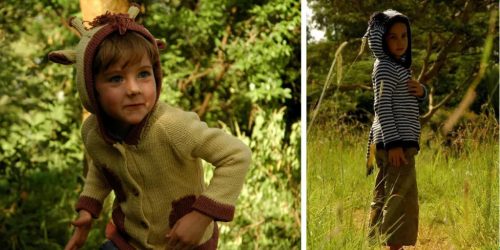
It’s now eight years later and we have the same core group of ‘mamas’ knitting for us. We bring the work to their village so they don’t waste any time in the process of getting to work. I think they love the traditional aspect of the job – it is not uncommon to find a group of women in a rural environment doing just what these ladies do all day, sitting in a group and knitting, while chatting, gossiping and singing at the same time. The beauty is that they are able to support their families and are really proud of themselves, thus setting good examples for their children and also for their communities.
We are now selling all over the world and producing products for brands such as Max Mara, Liberty and Co and more. With two workshops and up to 50 women kept busy with our work, this unorthodox way of starting a business somehow worked! As each piece is signed by the knitter, it’s more than a sweater – it’s a story.
Filed under: East Africa Travel
Subscribe for Weekly Stories
Comments (9):
2 July 2020
hi dear, i am in search for cotton yarn, where can i find it in kenya.
19 August 2018
Hi, knitting and crocheting is my all time hobby .I've been wanting to turn it into a business although finding cotton yarn in Kenya is the hardest bit. Reading this is such an inspiration.
27 March 2018
Hi, I just stumbled upon your story and I fell connected to it. My mum is a single mother of four, and all through my growing up I saw and felt the struggle that she went through just to put food on the table. Anyway she passed crochet skill down to me and now I'm trying to make a business out it. I want it to be a big company, where I can teach the skill and employ young mothers and ladies. I'm now a young mother and I thank God for my mum.
9 March 2018
I am Kenyan lady and would like to learn crocheting ,I would wish to know whether you teach the skill.
15 February 2017
Good morning Erin... i am really happy to have come across your website. i am interested in purchasing cotton yarn to knot together a prayer rope. As you did, i have searched without success. You seem to be my only hope. Kindly do contact me if i may buy some cotton yarn from you. Many thanks Govind Singh

Weddings in the Mara